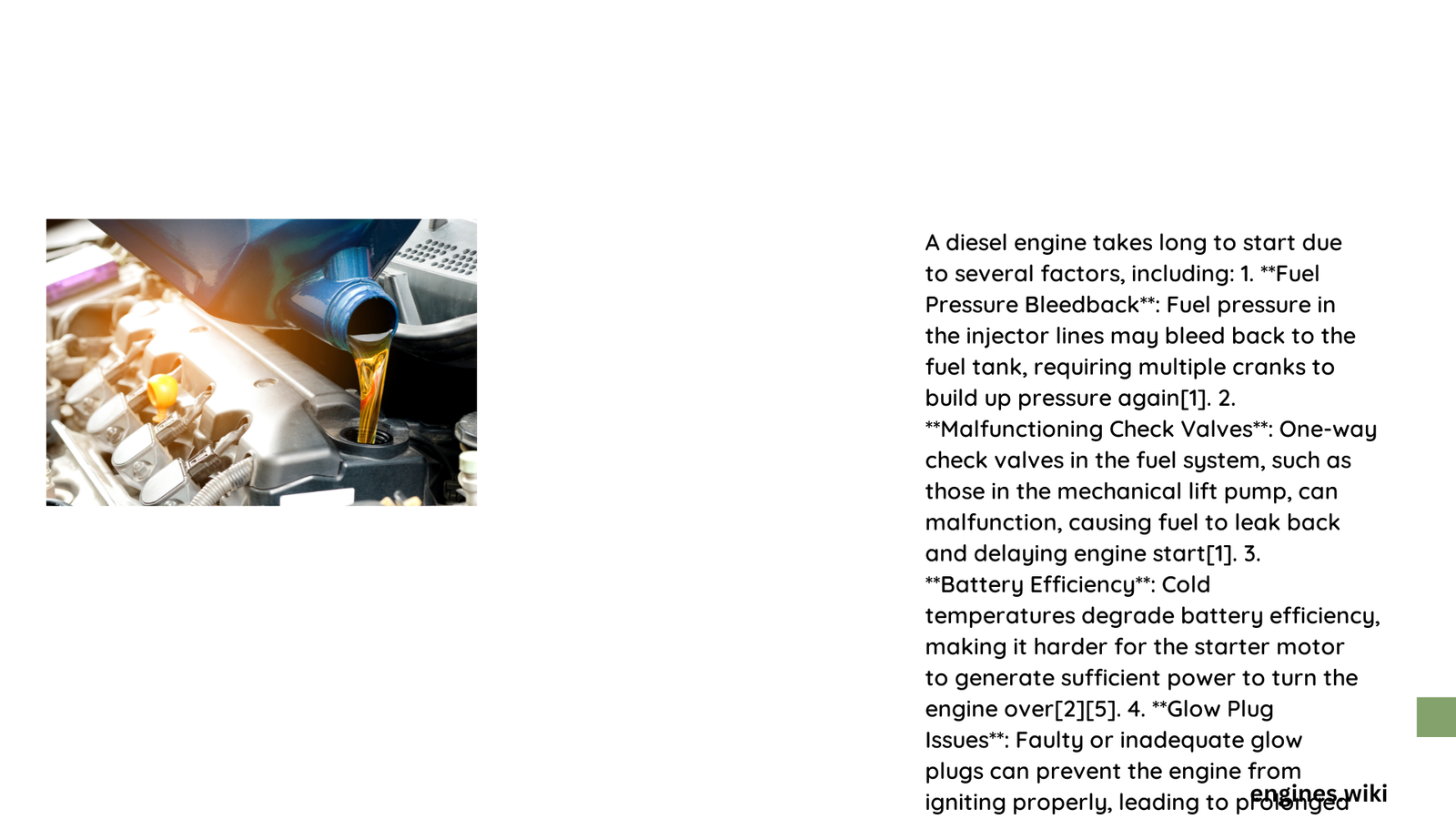Diesel engines often struggle with prolonged start times, particularly in cold environments. The complexity of diesel engine ignition involves multiple interconnected factors that significantly impact the engine’s ability to turn over quickly. Temperature, fuel characteristics, battery condition, and mechanical components all play crucial roles in determining how efficiently a diesel engine can start, especially when ambient temperatures drop below optimal operating ranges.
Why Do Diesel Engines Struggle to Start in Cold Conditions?
What Causes Fuel Viscosity Problems?
Cold temperatures dramatically affect diesel fuel’s physical properties, creating substantial starting challenges:
| Temperature Range | Fuel Behavior | Starting Difficulty |
|---|---|---|
| Above 40°F | Normal Fluidity | Minimal Issues |
| 15°F to 40°F | Increased Viscosity | Moderate Challenges |
| Below 15°F | Significant Fuel Thickening | Severe Starting Problems |
Key Viscosity Impact Factors
- Molecular structure of diesel fuel becomes more compact
- Reduced fuel flow through injection systems
- Decreased fuel atomization efficiency
- Higher resistance in fuel delivery mechanisms
How Do Glow Plugs Influence Cold Starts?
Glow plugs serve as critical components in diesel engine cold start processes:
- Preheating Combustion Chamber
- Raise cylinder temperature
- Reduce fuel ignition delay
-
Improve initial combustion conditions
-
Electrical Resistance Characteristics
- Optimal resistance: 0.5-2 ohms
- Malfunctioning plugs increase start times
- Require 20-60 seconds of preheating in cold conditions
Why Does Battery Performance Matter?
Battery capacity directly correlates with diesel engine starting efficiency:
- Cold Cranking Amps (CCA) Requirements
- Recommended: 500-1000 CCA
- Capacity decreases 50% at 18°F temperature drop
- Older batteries perform significantly worse
What Role Does Fuel Quality Play?
Diesel fuel composition significantly influences cold start performance:
- Cetane Number Importance
- Minimum recommended: 40-45
- Higher numbers indicate better cold start characteristics
- Impacts fuel’s self-ignition capabilities
How Do Cylinder Wall Temperatures Affect Starting?
Cylinder wall temperatures create substantial starting resistance:
- Temperature Categories
- 48°F to 15°F: Manageable starting conditions
- 15°F to 0°F: Increased starting challenges
- 0°F to -22°F: Significant starting difficulties
- Below -22°F: Extreme starting impediments
Practical Recommendations for Improved Cold Starts
- Use winter-blend diesel fuels
- Maintain battery health
- Check glow plug functionality
- Consider block heaters in extreme conditions
- Perform regular fuel system maintenance
Conclusion

Understanding the multifaceted reasons behind slow diesel engine starts enables better preparation and maintenance strategies. By addressing temperature, fuel quality, electrical systems, and mechanical components, diesel engine owners can significantly improve cold weather performance.
